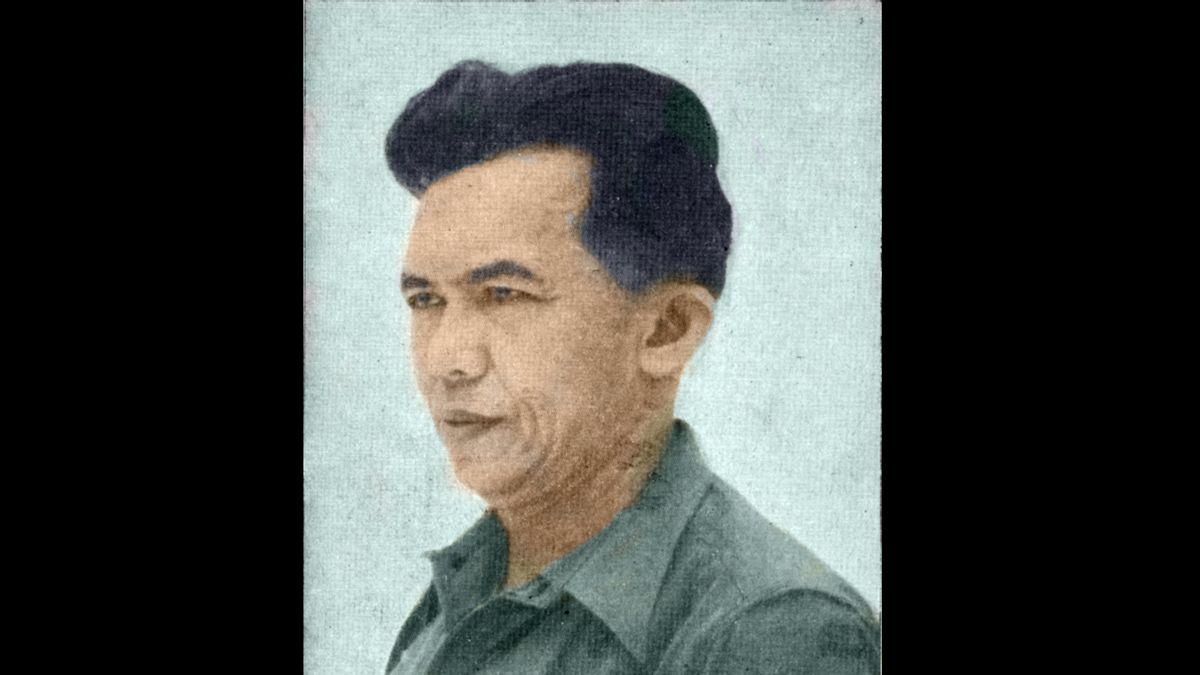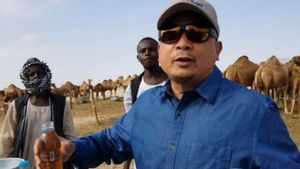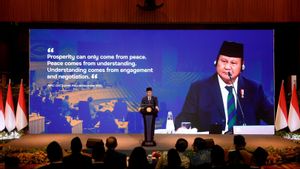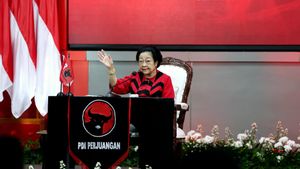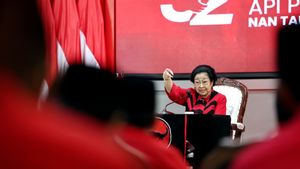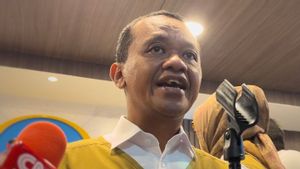JAKARTA - Tan Malaka is more than a fighter for Indonesian independence. He is a philosopher. When the other independence leaders were still busy thinking about unity, he took several steps forward in initiating a republic for the Indonesian state. There is Tan's big dream for Indonesia to stand as a country without a parliament. What is the idea like?
Because he was the initiator of the first republic for this country, Tan, a man who was born today, June 2, more than a century ago or in 1897, was nicknamed the Father of the Republic of Indonesia. Tan's long paper on the idea of a republic he had written in 1925, three years before the declaration of the Youth Pledge. The article was entitled Naar de Republik.
The booklet became mandatory reading for independence leaders at that time. In fact, Bung Karno always carried it with him, especially when he was about to attend debate forums. Hadidjojo Nitimihardjo told this story in his introduction to the translated edition of Naar de Republiek.
It was not only Sukarno who always carried Tan's works everywhere. Muhammad Yamin is also a figure who worships Tan. For Yamin, Tan is like the Father of the United States, Thomas Jefferson, who designed the Republic before independence was achieved.
A country without a parliamentTan did not have the chance to fully explain the form of the republic in question. Apart from Naar de Republiek (1926), his ideas were spread in his other books, such as Soviets and Parliament (1922), Mass Action (1926) and Madilog (1942).
As summarized by Hanas Nasbi A - author of the book Philosophy of the State According to Tan Malaka - in his writing in Tempo magazine (2008), explains how Tan analogized the relationship between the republic and Indonesia as a wren. Wren looked like weak creatures and many were threatening him.
On a low branch, this bird should be aware of the cat's grip. Meanwhile, on a higher branch, there is an eagle ready to grab the wren. He lives without freedom, full of fear and shrouded in feelings of threat. For Tan Malaka, Indonesia must be free from such fears.
However, on the other hand, if the wren are in a large group, they will be free to plunder the rice in the fields. Wren, which look weak, can change drastically into greedy looters.
So, according to Tan, independence must indeed be free from colonialism, but that does not mean that it is free to plunder and destroy other nations. For him, independence is two-way, free from fear and not spreading terror against other nations.
After independence, Indonesian buildings must have a shape. Firmly, Tan said, the former Dutch East Indies must become the Republic of Indonesia. However, the republic in its idea did not adopt the Motesquieu-style triad of politics. The Republic version is an efficient state managed by an organization.
Parliament in Tan's eyesTan Malaka is a figure who doesn't trust parliament. For Tan, the division of power like trias politica only causes damage. The separation between the people who make the laws and those who implement the rules creates a gap between the rules and reality.
Implementers in the field (executives) are the parties who are directly dealing with the real problem. The executive is always bothered to carry out their duties when the rules are made by people who only see problems from afar, such as parliament.
Democracy with a parliamentary system performs an election ritual once every four or five years. Over a long period of time, they have transformed into their own group that is far from society. Since parliamentarians are no longer mixed up with the people, they should no longer have the right to be called representatives of the people.
As a result, the parliament tends to produce policies that only benefit the owners of capital. Far from the interests of the community they represent. According to Tan, the parliament will naturally be tempted to have affairs with executives, companies and banks.
In the end, in Tan's eyes, parliament was nothing more than a stall for chattering. They consist of people who are good at talking and boasting. Tan called parliamentarians a useless group that the state had to support at high costs.
In short, Tan opposed the existence of a parliament in the republic he dreamed of. That is the reason why Tan strongly rejected the Declaration of Vice President Number X in 1945 regarding the establishment of parties. The reason is that the parties must end up in the parliament.
The Ideal Republic in Tan's EyesThen, what would Tan Malaka dream of a state without a parliament? To put it simply, the republic Tan was referring to was managed by a single organization. Within that organization, the authority is divided as executor, examiner, supervisor and as a judicial body.
How to control such an organization so as not to become a tyranny of power? This is where organizational design comes into play. For example, according to Tan, the election of organizational officials should not be too long so that trust does not turn into power.
Then, the organizational congress must also be held not for a long time. Ideally, it might take about two years to evaluate the work of organizational officials. If their work is unsatisfactory, the congress will bring them down.
That is about the idea of a republic dreamed of by Tan Malaka. Many consider Tan's concept to be too straight, so utopian, that it is impossible to follow. However, if you look at the behavior of the ruler today, it feels like Tan's fear occurred.
After all, dreams are dreams. And it is important to recall the enthusiasm in the idea of statehood one of the founding fathers who was executed on February 21, 1949 in Kediri.
The English, Chinese, Japanese, Arabic, and French versions are automatically generated by the AI. So there may still be inaccuracies in translating, please always see Indonesian as our main language. (system supported by DigitalSiber.id)
